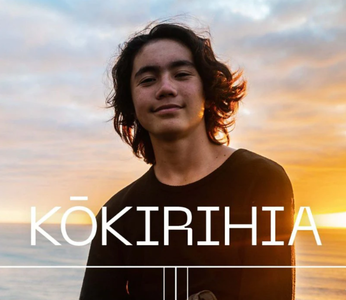1,000 signatures reached
To: House of Representatives
End school streaming - let all our tamariki thrive

We call on the Government to direct all schools—primary and secondary, and early childhood centres—to end the practice of streaming. If Canada can do it, so can we.
Why is this important?
As a nation we pride ourselves on being fair. We want to believe that no matter where you are born or into what circumstances, we all have an equal opportunity to achieve our potential.
But right now, an unfair practice that divides and labels tamariki (children) from the very first day they arrive at school is standing in the way of that vision.
This practice is known as streaming. It’s often called ‘in-class grouping’ in primary schools and ‘banding’ in secondary schools. At primary school, children are put into groups for reading or maths. The top groups get more challenging work, more teacher time and higher expectations.
Being put in the bottom class takes away children’s motivation and self-belief. They begin to think of themselves as less clever or capable.
Streaming is a systemic barrier to Māori success that operates at every level in our schools, particularly in mathematics and science. Our research has found streaming is one of the most significant barriers to future success, pushing rangatahi off course.[1,2]
Streaming can determine the pathways available to kids long after the decision is made. Many students who were told they’re low ability, do not or cannot enter full NCEA courses. The impact of streaming narrows career choices to low skill, low paid, and high risk jobs and employment. We know that it is bad for everybody, but it is especially bad for Māori and Pasifika students. This is systemic racism in action.
Ending streaming is one small step that will have a huge outcome for the futures of our rangatahi.
An increasing number of schools around Aotearoa have decided to run mixed ability classrooms with incredible results. These schools have all used alternative ways of teaching and have seen students do better academically, especially Māori and Pasifika students. They used tools that brought teachers and students closer together - like learning more about each child’s passions and goals for maths, and scrapping arbitrary deadlines to assess students when they were ready. Academic achievement improves across the board, kids’ self-belief, motivation and aspirations soar, and social and ethnic barriers amongst the students decline.
We need the government to step up to support an equitable education system that enables all rangatahi to be inspired by their future, confident in their culture, thriving in their work and empowered to succeed.
Add your name today to join us in calling on the government to end streaming in schools and stand up for our tamariki!
This is a movement led by Tokona Te Raki - The Maori Futures Collective http://www.maorifutures.co.nz/.
***
[1] He Awa Ara Rau - A journey of many paths, 2019 https://knowledgeauckland.org.nz/media/1902/he-awa-ara-rau-a-journey-of-many-paths-berl-tsi-et-al-nov-2019.pdf
[2] End streaming in Aotearoa, 2021 https://www.growwaitaha.co.nz/media/2173/ending-streaming-in-aotearoa-final.pdf
[3] Kōkirihia, 2024 https://tokona-wp.s3.amazonaws.com/uploads/2022/12/Ko%CC%84kirihia-Final-1.pdf
But right now, an unfair practice that divides and labels tamariki (children) from the very first day they arrive at school is standing in the way of that vision.
This practice is known as streaming. It’s often called ‘in-class grouping’ in primary schools and ‘banding’ in secondary schools. At primary school, children are put into groups for reading or maths. The top groups get more challenging work, more teacher time and higher expectations.
Being put in the bottom class takes away children’s motivation and self-belief. They begin to think of themselves as less clever or capable.
Streaming is a systemic barrier to Māori success that operates at every level in our schools, particularly in mathematics and science. Our research has found streaming is one of the most significant barriers to future success, pushing rangatahi off course.[1,2]
Streaming can determine the pathways available to kids long after the decision is made. Many students who were told they’re low ability, do not or cannot enter full NCEA courses. The impact of streaming narrows career choices to low skill, low paid, and high risk jobs and employment. We know that it is bad for everybody, but it is especially bad for Māori and Pasifika students. This is systemic racism in action.
Ending streaming is one small step that will have a huge outcome for the futures of our rangatahi.
An increasing number of schools around Aotearoa have decided to run mixed ability classrooms with incredible results. These schools have all used alternative ways of teaching and have seen students do better academically, especially Māori and Pasifika students. They used tools that brought teachers and students closer together - like learning more about each child’s passions and goals for maths, and scrapping arbitrary deadlines to assess students when they were ready. Academic achievement improves across the board, kids’ self-belief, motivation and aspirations soar, and social and ethnic barriers amongst the students decline.
We need the government to step up to support an equitable education system that enables all rangatahi to be inspired by their future, confident in their culture, thriving in their work and empowered to succeed.
Add your name today to join us in calling on the government to end streaming in schools and stand up for our tamariki!
This is a movement led by Tokona Te Raki - The Maori Futures Collective http://www.maorifutures.co.nz/.
***
[1] He Awa Ara Rau - A journey of many paths, 2019 https://knowledgeauckland.org.nz/media/1902/he-awa-ara-rau-a-journey-of-many-paths-berl-tsi-et-al-nov-2019.pdf
[2] End streaming in Aotearoa, 2021 https://www.growwaitaha.co.nz/media/2173/ending-streaming-in-aotearoa-final.pdf
[3] Kōkirihia, 2024 https://tokona-wp.s3.amazonaws.com/uploads/2022/12/Ko%CC%84kirihia-Final-1.pdf

